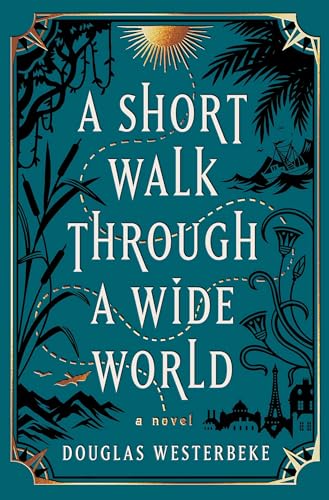A Short Walk Through A Wide World
In 1885 Belle Époque Paris, selfish, ungrateful nine-year-old Aubry Tourvel finds a wooden puzzle ball on a dead man’s doorstep. She picks it up, but quickly tires of it and throws it away. It reappears in her backpack as though attached to her, and when her sisters ask her to sacrifice something precious at a wishing well, to do some good in the world, she refuses to part with it. Shortly thereafter she becomes very ill, spasming and bleeding profusely. The doctor makes things worse, so she runs. Running away improves her condition, so her mother travels with her until exhaustion takes over, and Aubry then sets out on her own.
Moving keeps the sickness at bay as she learns to hunt, survive, and barter rather than beg or steal. She circumnavigates the world many times, but she cannot stay in one place for more than two or three days, and can never go back or revisit somewhere she has been. The fatal illness follows her but allows her to accomplish seemingly impossible journeys. She crosses the Calanshio Sand Sea on foot, crews in the Seychelles, slaughters whales in the Faroes, follows wildebeest across the Serengeti, discovers doors to labyrinthine underground libraries, and finds love on a train to Vladivostok. And much more.
It took a while to settle into this novel but once I did, I was struck by the superbly descriptive settings, particularly in the latter half. Feeling Aubry’s journey eluded me quite often, as I felt as though I was watching her and hearing her story and only sometimes living it. Time is a fluid, inconsequential thing in this intriguing, unconventional novel―an Alice-in-Wonderland-type allegory, a coming-of-age in the broadest sense and a fantastical odyssey to find meaning, understanding, and self-acceptance.










